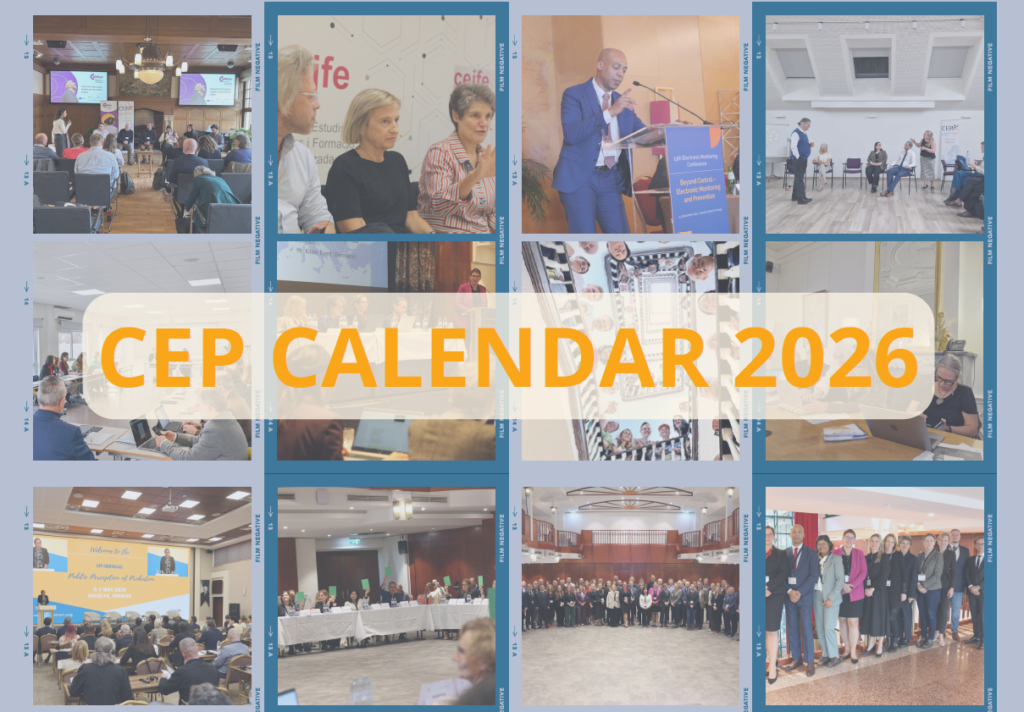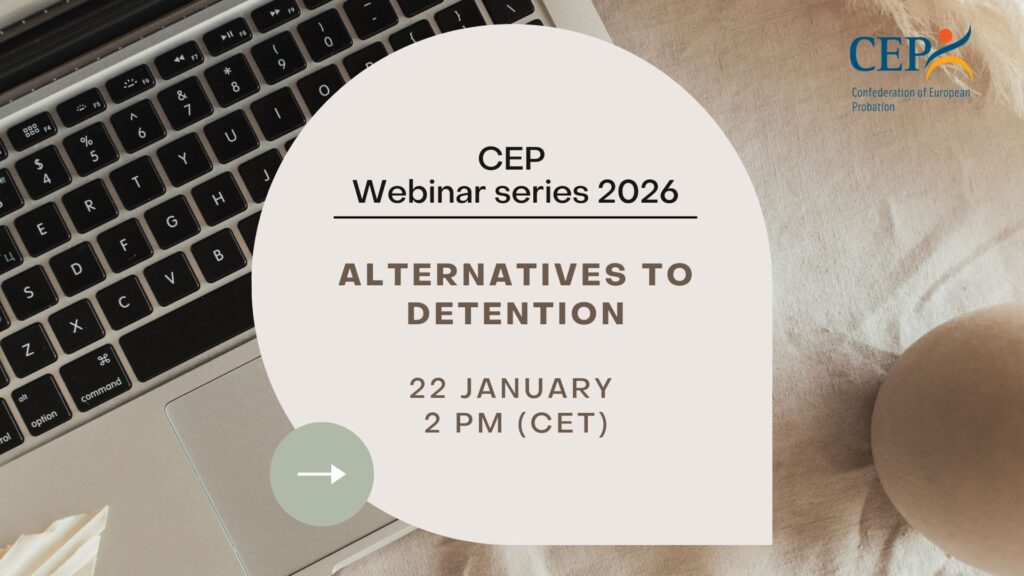Previous Article
News
Catalonian Open Prison Regime: Individuality and continuity are key
European countries have found different ways to manage the transition from prison to a community sentence or release. The Spanish system in general, and the Catalonian prison system in particular, has designed the open prison regime, which gradually introduces inmates back to society. “The regime has proven to work,” says Paula Montero i Brasero, Deputy Director General of Rehabilitation Programmes at the Justice Department of Catalonia “because it provides more continuity for the individual and puts the offender in touch with the public services.”

Successful strategy
About 25% of all inmates are currently in the open prison regime; the majority of this group has already served at least the ½ of their sentences, but some of them can benefit from this regime from the very beginning of their time in prison.
“All offenders at open regime have their own individual plan, based on the results of RNR (Risk Needs Responsivity) assessment tools, used among all the Catalonian prison service. At the same time, the system provides, trough community resources, special interventions to those who need them because of the type of crime committed or because of their special needs: For instance, to those convicted for violent or sexual crimes, for drug related sentences and for driving offences.” says Paula Montero. “This is very important because the ultimate goal is normalisation and social integration.”
Internal research has also shown the success of the open regime and conditional release. The percentage of ex-offenders who desist from crime after living in the open regime prisons and conditional release falls to 18%. The average recidivism rate is 40%, which makes the 22% a very significant achievement.
Two lessons
The cooperation of the offender is at the basis of the success of the open prison regime. According to Paula Montero, there are two characteristics of the system that contribute to its success. “One lesson that can be learned is that the individual approach works very well, this is why we assign a single case manager to each offender. The first lesson ties in with the second one: The case manager is in touch with the social and community services on an individual basis. This collaboration results in a close relationship between the offender and the community, which helps in the desistance process.
Acceptance
Part of the rehabilitation process consisted in drugs treatments, vocational training and employment training. “The family, if present, plays a large role in the offender’s process of inclusion in society,” says Paula Montero. “The offender will be moved to a new facility, where it has to spend the night and at least 8 hours of the day. The other hours can be spent with the family and/or at work. As a result, the community can accept the convicted person back in a gradual way. The social network is slowly re-established.” But that is not the only positive outcome, continues Paula Montero: “It is important that the criminal stigma is also lifted, I think we also influence public opinion towards prison and probation sentences in a positive way. This helps us and the (ex-)offender greatly.”
Different modalities to apply open regime
Due to the individual approach to the prisoner, different tools or modalities are used to execute the sentence. For instance, an offender who has the duty to take care of small children during the night and works the rest of the day can benefit of a curfew of eight hours at home with Electronic Monitoring, instead of returning to prison each night. EM is a tool, not a sentence itself. So offenders under EM also have an individual plan followed up by a personal case manager.
Another option under the umbrella of open regime is to send offenders to “hostels”. The hostels are called “dependent units”, because each one is affiliated with a open regime prison. A non-profit organization provides all the services according to a fixed contract with the Justice Department. “Yes, this is quite an interesting experience,” says Paula Montero, “because the design and follow up of the concrete activities of the program are a duty of the NGO case manager, but in a close contact with the staff of open regime prisons, which retain the legal responsibility behind the legal authorities. The main goal is that offenders who serve the sentence there may learn how to live as any other citizen and with normal neighbor residents. For this reason most of the hostels are placed in the middle of cities around all the Catalonian territory.”
Finally, the last option that the open regime system offers is the possibility to serve the sentence at a community based unit, placed at farms outside the city or at special flats inside cities, intended for the treatment of sever drug addictions problems. When this option is possible, the negative effects of incarceration on the treatment are avoided.
Link to the website of the Catalonian Ministry of Justice Rehabilitation and Prison Services

Related News
Keep up to date with the latest developments, stories, and updates on probation from across Europe and beyond. Find relevant news and insights shaping the field today.
New

CEP Events
CEP activity calendar 2026
20/01/2026
As we begin the new year, we would like to thank all CEP members, partners, and participants for your continued engagement and valuable contributions. Your involvement plays an essential role in shaping CEP’s work and activities.
We are pleased to share the CEP calendar for 2026, which provides an overview of the events planned for the year ahead. We look forward to continuing our collaboration and welcoming you to upcoming CEP activities throughout the year.
Thank you for being part of the CEP community.
New

CEP members, Gender-based violence
Interventions Alliance’s Eden House Recognized as Outstanding
15/01/2026
CEP is delighted to share that Eden House, an Interventions Alliance residential service for women with high-risk or complex needs on probation, has been rated “Outstanding” overall by HM Inspectorate of Probation. In 2022, Eden House was honored with the CEP Public Protection Award. Our sincere congratulations to the team for this remarkable achievement.
New

Education and Training
The Judicial Training Dashboard
14/01/2026
The European Training Platform (ETP) is a search tool for justice professionals. You can find self-learning materials on a great variety of EU law practice areas and related topics, as well as links to training providers’ homepages and course catalogues.
New

Technology
Communication on DigitalJustice@2030
13/01/2026
The EU’s competitiveness will increasingly depend on the digitalisation of all sectors, which will drive investment. Digitalisation and the deployment of artificial intelligence (AI) will be essential to the ability of public authorities to deliver high-quality public services, notably also in the field of justice. Europe’s Digital Decade is underway with the ambition that by 2030 the EU has all key public services available online. The ultimate aim will be to increase the efficiency of public services by making them digital by default, stimulating productivity.
New

Alternatives to pre-trial detention, CEP Events
Webinar on Alternatives to Detention – CEP Webinar Series 2026
13/01/2026
CEP is pleased to invite you to the first webinar in the CEP Webinar Series 2026, taking place on Thursday, 22 January 2026, at 14:00 CET. This webinar will introduce a unique programme developed by the Meuse Probation Service, which was awarded the CEP Award 2025 in the category of Rehabilitation and Social Inclusion (The Sue Hall Award).
New

Alternatives to pre-trial detention, CEP Events
CEP Webinar Series 2026
12/01/2026
In 2026 CEP launches a series of short webinars that will take place every third Thursday of January, March, May and November.
We sincerely invite all probation practitioners, social workers, managers, policy makers, researchers, students as well as colleagues from partners organisations to join and share your knowledge with us.
Subscribe to our bi-monthly email newsletter!
"*" indicates required fields
- Keep up to date with important probation developments and insights.

